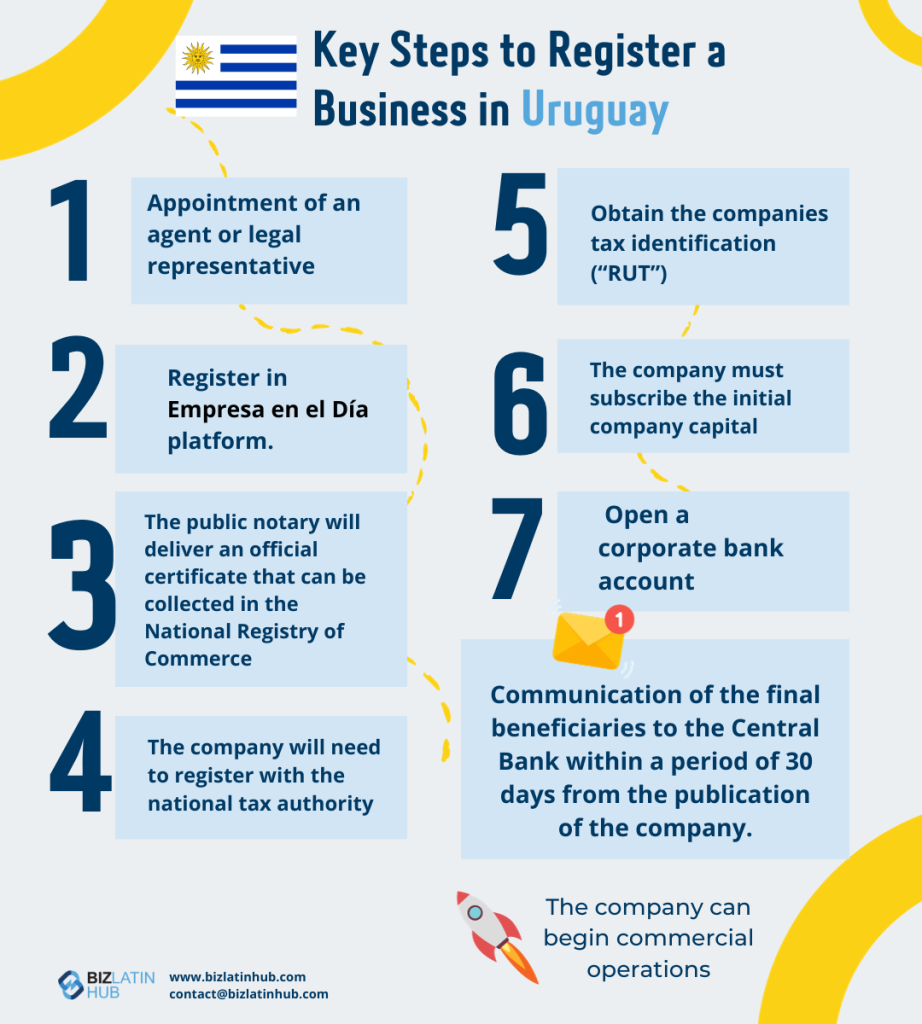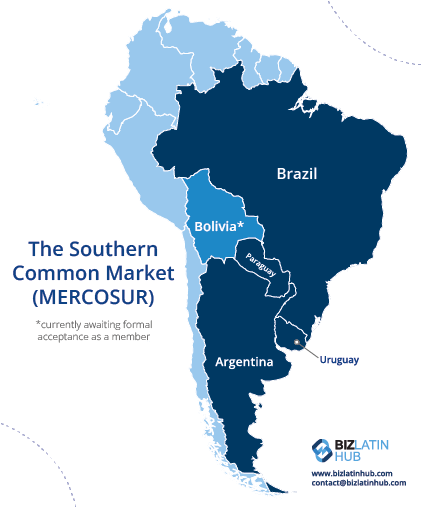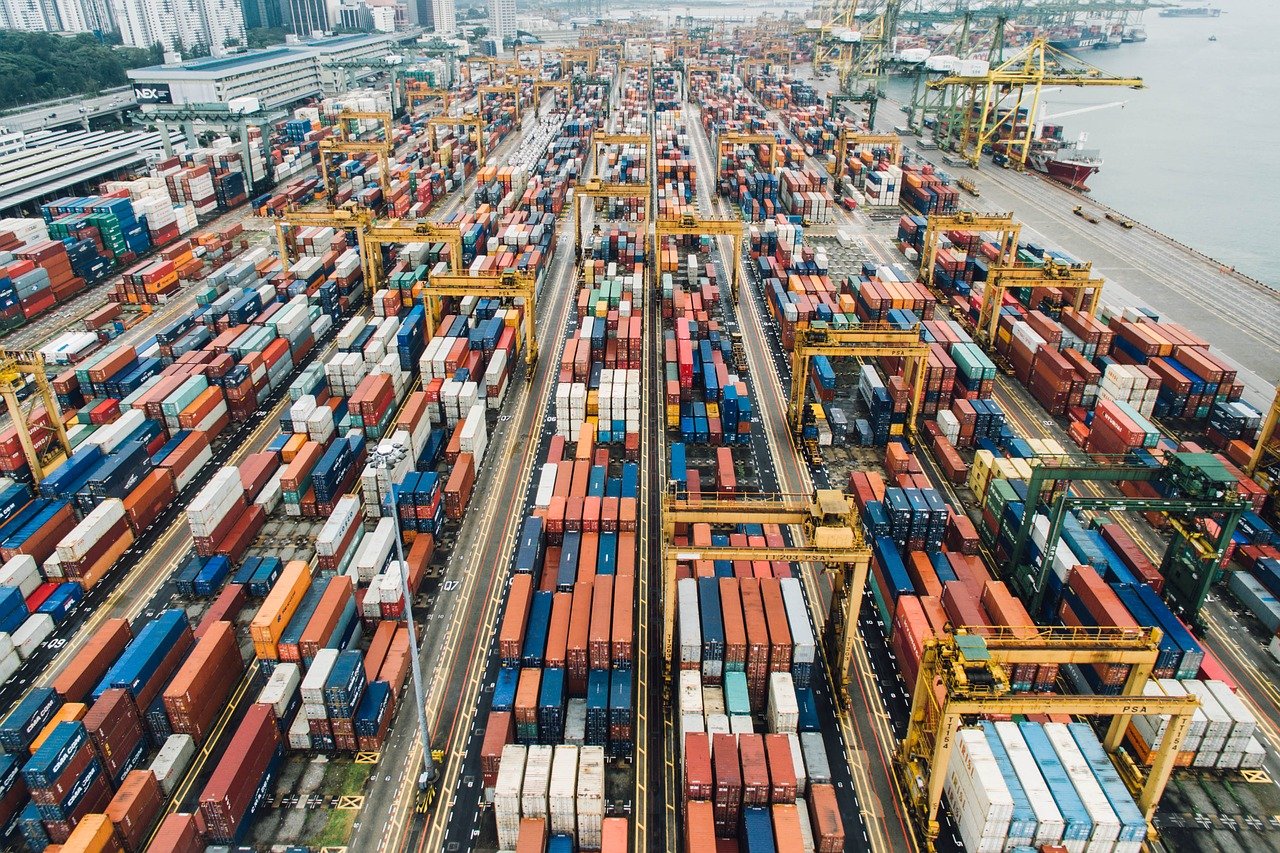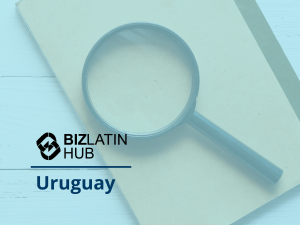Learn about trade activity and how to import and export in Uruguay. Running trade operations in Uruguay offers many advantages to companies doing business in Latin America. One of the key benefits of conducting imports and exports in Uruguay are the country’s trade agreements, which lead to a tax reduction and in facilitated across borders activities.
Furthermore, Uruguay is a member of the World Trade Organization, ALADI and MERCOSUR. All these organizations share one target: reducing trade barriers and creating a non-tariff area between all member countries. Additionally, Uruguay has set up so-called ‘Zonas Francas’ – free trade zones within the country, which offer companies further tax advantages. Moreover, local legislation enables foreigners to fully own a local company and operate within the country’s political stable environment.
We outline regulations to import and export in Uruguay, and how you can access experienced trade law specialists to support your business activities.

Requirements for import and export in Uruguay
In order to trade in or from Uruguay, any import or export business must have a company registered with the General Tax Directorate (DGI), the Social Security Bank (BPS) and the State Insurance Bank (BSE).
Moreover, the services of a Customs Broker must be requested at the Uruguayan Customs Broker Association. The importer or exporter must submit all necessary documents to the Customs Broker Association to work with a registered Customs Agent.
The distributor prepares the Single Customs Document (DUA) and presents it together with the corresponding tax settlement to the National Customs Office (DNA). Once the DUA has been checked by the DNA and the liquidation accepted by the dispatcher, the DNA validates and lists the DUA.
At the same time, the DNA informs the Bank of the Oriental Republic of Uruguay (BROU) about the corresponding amounts for each tax to be collected, and the number of DUA granted. As soon as the distributor receives the registration number of the DUA, they pay the settlement to the BROU. The national bank then communicates the payment to the DNA.
In addition, the distributor receives the amount to be paid for taxes and the degree of the assigned verification channel by the DNA.
The verification indicators are:
- Green: no verification
- Orange: verification of documents
- Red: verification of merchandise and documents.
How to import goods to Uruguay
Once the importer has met all requirements and thus completed the DUA procedure, the Customs agency prints the DUA and attaches it to the merchandise, along with an affidavit, which must be signed by the distributor and the imports.
Furthermore, all required documents, such as:
- Commercial invoice
- Bill of Lading
- Certificate of Origin
- Packaging List.
Following this, the distributor pays the port supplies (cost inherent to the procedure) at the ANP or at the airport and clears the merchandise. An assigned customs verifier examines then the merchandise and grants the ‘Customs Compliment’.
The MERCOSUR Common Nomenclature
The MERCOSUR Common Nomenclature (NCM) is based on the Harmonized System for the Designation and Codification of Goods. It is made up of a ten-digit numerical code (the first eight digits common to MERCOSUR and the last ones are internal to each country). Its purpose is the codification of merchandise common to MERCOSUR member countries.
Commercial invoice
The commercial invoice is a document that contains the specific declaration of each shipment of merchandise, individualized by its price and its own commercial name. The exporter signs the commercial invoice.
Customs Compliment
The Customs Compliment is the proof of the verifications carried out, issued by the customs officials involved in the respective documentation.

How to export from Uruguay
Once the exporter has met all requirements, the freight forwarder ships the merchandise. Furthermore, the dispatcher pays the proceeds at the BROU with the corresponding certificates, such as the bill of lading received by the transport company. Subsequently, the Customer grants the Customs Compliment.
According to the World Bank Group, border compliance process time can take approximately 100 hours.
Physical examination of merchandise
During the export process, Customs takes some security precautions that the exporter should be aware of. In terms of a physical recognition, which is carried out in the presence of the Uruguayan post, a customs specialist randomly selects a number of goods to examine them physically in order to prevent critical incidents.
These physical examinations can take place without incident. However, in the case that an incident occurs, for instance, the Customs assumes fraud or finds prohibited/restricted goods without having been declared as such, they can cancel the DUA.
Reception of ‘Exporta Fácil’ consignments
During the reception of ‘Exporta Fácil’ consignments, those items sent by customs must be received by the approved post office within a maximum of 25 calendar days from when the registration number was given by the DUA.
The Uruguayan post is responsible for the transmission and delivery of the goods to the aviation company. Before the goods are stored, a customs official makes sure that the security seals are in place and that they have not been tampered with or changed.
Furthermore, the Customs Broker issues a report on the assertion of the corresponding steps. The freight forwarder checks the dispatch of the goods and records the number of packages and the total gross weight, giving the date and time of the end of the last shipment.
Certificate of origin
It is necessary to certify the origin of your goods to be able to reduce or eliminate import taxes when entering merchandise originating from countries with which Uruguay has signed commercial agreements.
The certificate of origin declares: “This document contains the generic declaration of each shipment of merchandise formulated by the exporter and corroborated by Official and Private Organisms authorized for this purpose.” (Article 71, National Customs Code).
Import and export in Uruguay with specialist support
Get in touch now with specialist trade law experts at Biz Latin Hub to begin your trade business in Uruguay.
Our bilingual team of expert lawyers specialized in international trade in Latin and South America offer all necessary support to correctly conduct import and export procedures in Uruguay.
Our team of local and expatriate professionals can also connect you with the right Customs support to ensure your goods are handled with care and in full compliance with the law.
Learn more about our team and expert authors.






